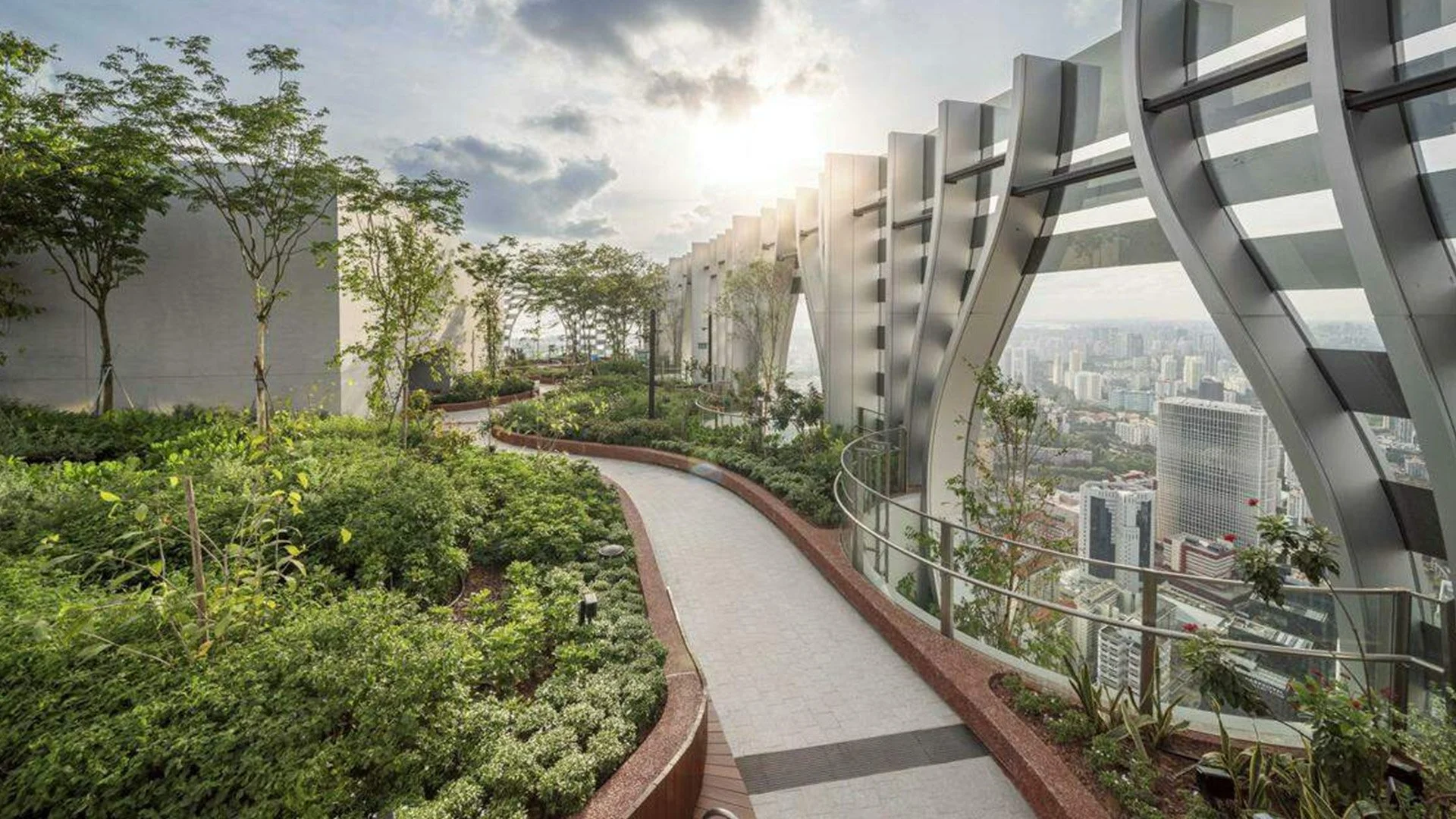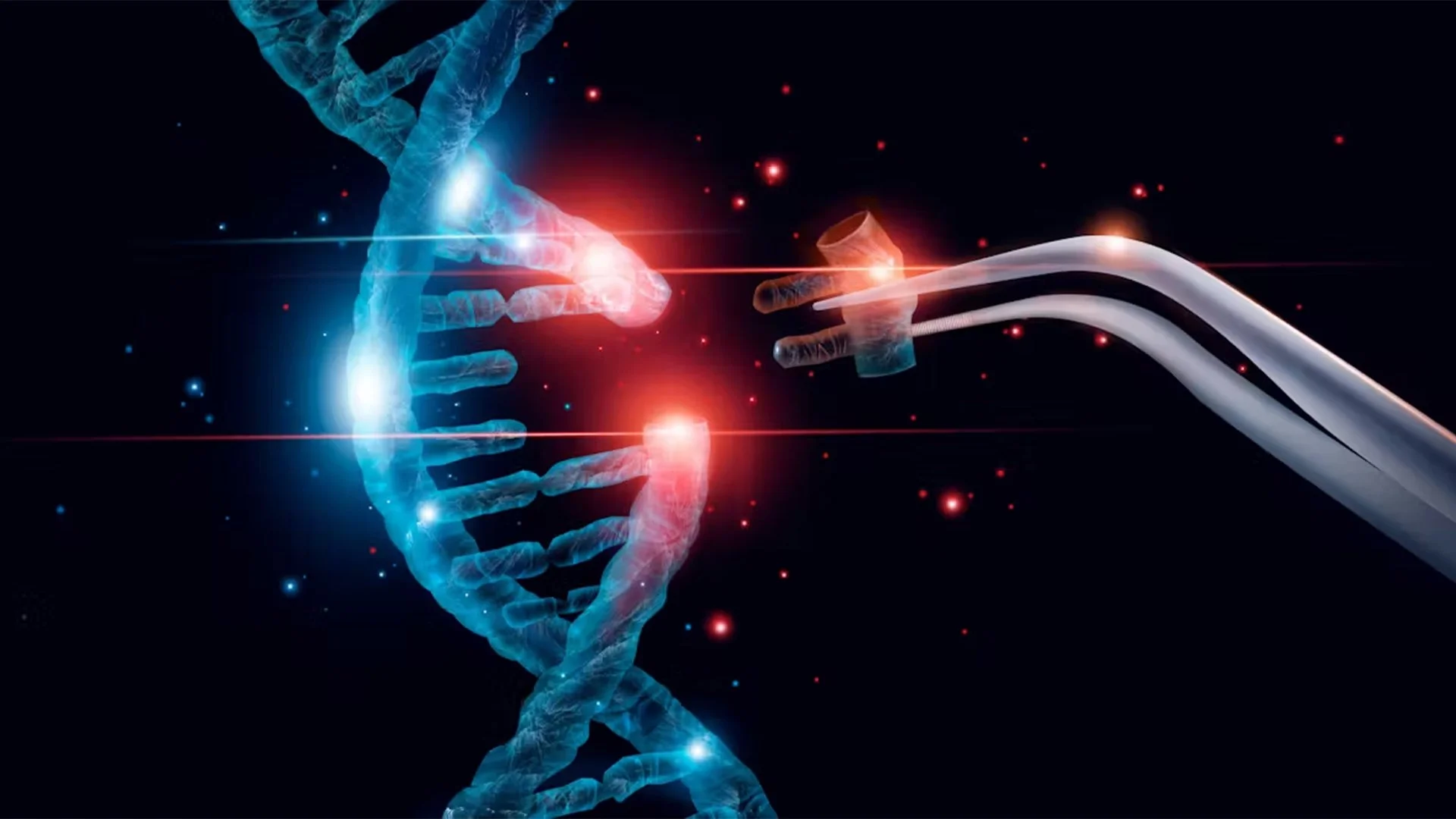Looking Beyond the Tech Apocalypse: A Father's Optimistic Take on Tomorrow ⚡️ (Part 2) – From City Revitalisation to the Biology Revolution
To refresh your memory, Part 1 was the flashy sci-fi-esque stuff – flying cars, space highways, and autonomous everything. The kind of future you can picture from a cinema seat with popcorn in hand.
This is the other stuff. The boring-until-it-isn't stuff. The new era of clean energy. Cities with digital twins. Bio hacking.
I know, nobody's really posting that "nuclear energy is so hot right now" or hyping "Biology is the new crypto." I repeat, there will be no viral unboxings for urban planning software. But while everyone's doom-scrolling through the AI apocalypse, these three forces are rewriting how civilisation will actually function.
And by the time my son's old enough to roll his eyes at my outdated references, these shifts won't be future-talk anymore. They'll just be how things work. The metaphorical scaffolding holding up a world that runs fundamentally differently than ours does now.
So yeah, let's talk about the stuff that doesn't make headlines but might actually matter more than the ability to type 'rabbits bouncing on a trampoline' into an AI slop engine.
Energising Tomorrow: Nuclear and Wave Power Are Back from the Dead
Clean energy has had a strange public life – one moment it’s the hot new thing, the next it vanishes like Chumbawamba. Solar and wind made headlines a decade ago, then stalled over cost, reliability, and scale. Every few years, the conversation resurfaces – often after an oil spill or a record heatwave. But recently, the mood has shifted. Clean energy now has the financial and political backing to stick. And it’s not just about saving the planet – it's about powering the ravenous appetite of the cloud, AI, and crypto.
That’s why nuclear’s catching the eye of tech billionaires and politicians who get their spray-tan tips from Ross from Friends. The old fear and stigma – Homer Simpson snoozing at the control panel – have faded like a Tamagotchi in a junk drawer. (Yes, I’m a ’90s kid.) Companies like Oklo, backed by OpenAI’s Sam Altman, are building compact reactors that look less like Mr. Burns’s empire and more like sleek chapels, with the tricky stuff buried safely underground. They’re apparently safe, flexible, and reliable – ideal for small communities, industrial parks, or the army of GPUs that will do your kid’s homework (not mine, of course). If it works, nuclear could finally shed its doomsday image and power the digital age. Fun fact: Oklo’s reactors can even run on spent fuel, turning yesterday’s waste into tomorrow’s energy.
Speaking of changing tides. The oceans are staging their own comeback. Wave power has long looked like a sleeping giant – abundant and predictable – yet past designs often failed against storms and saltwater. Enter CorPower, whose tech mimics the pumping motion of the human heart, allowing devices to flex with waves instead of fighting them. Unlike clunky rigs anchored like battering rams, CorPower’s units are lighter, buoyant, and deployable in clusters for efficiency. Coastal regions could become reliable local power plants – as steady as the tide itself.
Frontier energy tech is a tough sell – so are rocket launches, and we still aim for the stars. But momentum in clean energy is undeniable, and the scale could be staggering. This isn’t just about cheaper bills or greener urban environments. It’s about fuelling tomorrow’s industries without suffocating our planet. Entire new sectors could be born, careers unlocked, and communities that lived in energy poverty finally stepping into the light.
The Future of Cities: Smart, Green, and Actually Worth the Rent
I love the chaos and buzz of cities – but they can sideswipe you faster than a midnight nappy blowout. The cities of tomorrow won’t be the sprawling mazes of today; they’ll be thinking, adapting, and reinvigorating themselves in ways that make me want to cryogenically freeze myself and wake up when it’s here.
One of the biggest shifts is digital twins: virtual replicas of real cities fed by sensors, drones, and IoT devices. Think The Sims meets SimCity, but running on a supercomputer brimming with data. Slight Big Brother vibes, but in a good way. Future cities could let planners test “what-if” scenarios before laying a single brick. Traffic could be redirected in real time, energy shared between neighbourhoods, and disaster responses rehearsed like the world’s highest-stakes escape room. Streets become a sandbox-mode video game, overseen from some central hub, most likely with hologram monitors straight out of Iron Man.
Another transformation is the 15-minute city, flipping urban sprawl on its head. Paris and Milan are restructuring neighbourhoods so everything you need – groceries, healthcare, schools, parks – is within a 15-minute walk or bike ride. It’s your gran’s walkable neighbourhood, but with Wi-Fi and a solid oat flat white. This decentralises urban life, slashes carbon emissions from commutes, and stitches back the social fabric that car culture shredded faster than my attention span during a resourcing meeting. Mixed-use development and protected bike lanes turn each district into a self-sufficient pocket where life happens locally – not an hour away in bumper-to-bumper traffic while you desperately try to hold in a mega wee.
And then there’s biophilic urbanism, where cities finally remember they’re ecosystems, not just monuments to the invention of concrete. Singapore leads the way as a “Garden City,” weaving vertical gardens and wildlife corridors into skyscrapers and alleyways. Green roofs cool buildings, urban wetlands filter stormwater, and tree-lined streets reduce heat exposure while improving mental health. Future cities could reintroduce native species, restore urban microbiomes, and design streets as biodiverse habitats instead of rivers of asphalt that turn into lava every summer. Imagine a plaza where you might actually see a butterfly, not just pigeons circling your fish and chips.
Yes, it’ll be messy and expensive – urban development always is – but the payoff could be huge: cities that think, adapt, and maybe even give you directions when you’re late. Less crumbling concrete, more Captain Planet vibes. And honestly, if that doesn’t finally justify the rent, what will?
Biology, Reprogrammed: Gene Edits, Organ Farms, and Microbe Monitoring, Oh My!
The most personal revolution of all is happening inside our own cells. Biotech isn’t just lab coats and petri dishes anymore – it’s biology fused with data and engineering at a scale that makes sci-fi feel like a documentary.
CRISPR gene editing has developed real-world cures (but hasn’t quite cracked the cost). Early trials are curing genetic blindness, tackling sickle cell disease, and even exploring cancer treatments that reprogramme immune cells like software patches.
Next-generation tools like base and prime editors give scientists terrifyingly precise control over DNA. Base editors can swap a single “letter” of DNA without cutting the whole strand – like editing a word in a sentence instead of tearing the page out. Prime editors can go further, rewriting longer stretches of DNA with exact precision – like using a word processor on your genome. These tools could make genetic disease prevention look less like a moonshot and more like a routine clinic visit.
It’s not just about curing disease – it’s about expanding what’s possible for human health and longevity. AI-powered drug discovery is shrinking timelines from decades to months, creating therapies tailored to individuals instead of “one-size-fits-most” prescriptions. Companies are working on lab-grown organs to end donor shortages, and engineered microbes that live in your gut, monitoring your health like an internal smartwatch. There’s even research into programmable vaccines that will eventually be updated as fast as a smartphone app.
Of course, biotech carries its own moral and regulatory minefields. Who decides what traits are “fixable” versus enhancements? How do we secure genetic data when breaches already expose credit cards and passwords? Will it only be available for the wealthy? These aren’t sci-fi hypotheticals – they’re conundrums my son’s generation will certainly inherit.
Still, biology is becoming controllable, and that’s monumental. By the time he’s my age, many genetic diseases might be as outdated as polio. “Going to the doctor” could mean updating parts of your biology as easily as an operating system. Forget jetpacks – the real revolution might be in our bloodstreams.
Betting on Better: Positivity Over Pessimism
Optimism about technology can feel naïve when the news cycles scream job losses, inequality, and existential risks. These innovations will bring disruption, ethical dilemmas, and plenty of “Should we actually be doing this?” moments. The transition will be messy and some people could be left behind.
But every major leap in human history looked terrifying from the ground floor. The printing press, electricity, cars, the internet – all met with fear and predictions of collapse. And yes, they brought disruption. But also progress and possibilities previous generations couldn’t fathom. The difference now is scale and speed. My son will witness more change in his first twenty years than I’ve seen in nearly forty.
His world won’t be perfect – it’ll be overwhelming and occasionally terrifying. But it’ll also be packed with capabilities and opportunities we’re only just beginning to imagine. Problems we consider unsolvable today will have answers. Limitations we accept as permanent will dissolve. And the gap between possibility and reality will shrink faster than ever before.
I won’t pretend to know how every piece falls into place. What I can control is my mindset: staying open rather than closed off, fascinated rather than frozen. That’s what I want to model for him – not blind faith in progress, but active engagement with it.
So yeah, while the doomscrollers queue up the next catastrophe, I’m betting on something better. Not out of denial, but because pessimism offers nothing useful – just anxiety without action. These changes are happening regardless of our comfort level. And once you look past the chaos and confusion, there’s something genuinely thrilling about what’s taking shape.
Right, nappy duty calls. The future can wait – there's a little man who needs me. But if I get this parenting thing even halfway right, my son will grow up curious, adaptable, and unafraid of what's next. Sure, he'll stumble, screw up, and probably roll his eyes at everything I say. But he'll also laugh louder, aim higher, and experience a world I never could have imagined.





